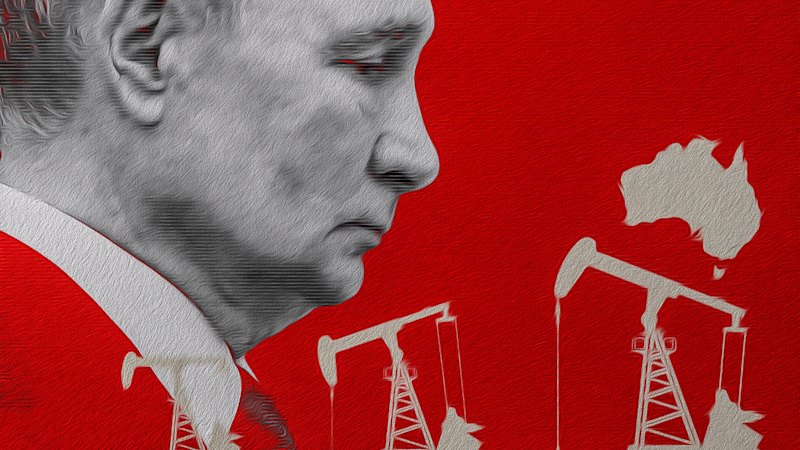
One of Australia’s most influential business figures, Andrew Forrest, has called on the Albanese government to take decisive steps to prevent Russian-origin oil from entering the country. The Fortescue Mining founder warns that existing loopholes in sanctions are empowering tyrants and undermining Australia’s foreign policy.
Forrest’s comments come in response to the “Blood Oil” investigative series by the Herald and The Age, which revealed the significant quantities of Russian-origin oil entering Australia since the onset of the Ukraine war. This oil has provided a crucial funding source for Vladimir Putin’s military efforts.
The Australian-Ukrainian community has also urged the government to join a coalition of nations opposing former US President Donald Trump’s controversial plan to end the war in Ukraine. Forrest stated, “No family filling their car with petrol should have to wonder whether their money is helping bankroll Putin’s assault on Ukraine. This should ring alarm bells across Australia.”
Sanctions and Economic Vulnerabilities
Forrest emphasized that allowing Russian fossil fuels into the Australian economy is not just a policy failure but a national vulnerability. He has been a major supporter of Ukraine since the war began, advocating for its cause at international forums and donating $30 million through the Minderoo Foundation for de-mining and recovery operations in Ukraine.
The Centre for Research on Energy and Clean Air, a Finland-based non-profit, estimates that Australians purchased $3.8 billion worth of petrol and diesel made from Russian crude, refined in India, between February 2023 and June 2025. These imports have circumvented Australian sanctions introduced following Putin’s 2022 invasion of Ukraine.
“Sanctions with loopholes are useless,” Forrest declared. “Australia needs a sanctions regime in line with the European Union, that stops Russian oil being laundered through third countries.”
Global Responses and Australia’s Position
The European Union has announced a ban on petroleum products made from Russian crude oil refined in third countries, with Britain making a similar pledge. Australia’s Foreign Minister Penny Wong welcomed these moves but noted the challenges in implementation. “We’re liaising closely with the EU and UK, assessing and consulting on whether there are European regulatory measures we can utilise,” a spokesperson for Wong said.
Wong also praised Reliance Industries, the largest Indian fuel supplier to Australia, for its decision to cease using Russian oil at its export refinery from December. Forrest insists Australia must lead in ensuring its sanctions laws align with global energy markets. “When fuel made from Russian crude reaches Australia, it undermines our stance on Ukraine,” he said.
“We must close these channels and align our values with our supply chains,” Forrest added, advocating for an accelerated shift to green energy to cut off support for autocrats like Putin.
International Peace Efforts and Australia’s Role
Trump’s draft plan to end the war involves Ukraine ceding land in the Donbas region and reducing its army size, despite some areas being under Ukrainian control. EU, Canada, Japan, and Britain leaders, at the G20 summit, welcomed the peace plan but noted it needed further work. They emphasized that borders must not be changed by force and expressed concerns over proposed limitations on Ukraine’s armed forces.
Australia did not sign the statement, as government sources indicated that Prime Minister Albanese was not invited to the drafting meeting, excluding Australia from the process.
As the international community grapples with the complexities of the Ukraine conflict, Forrest’s call for stringent sanctions highlights the ongoing debate over economic policies and their geopolitical impacts. The Australian government faces pressure to align its actions with global efforts to curb the influence of Russian oil in international markets.






